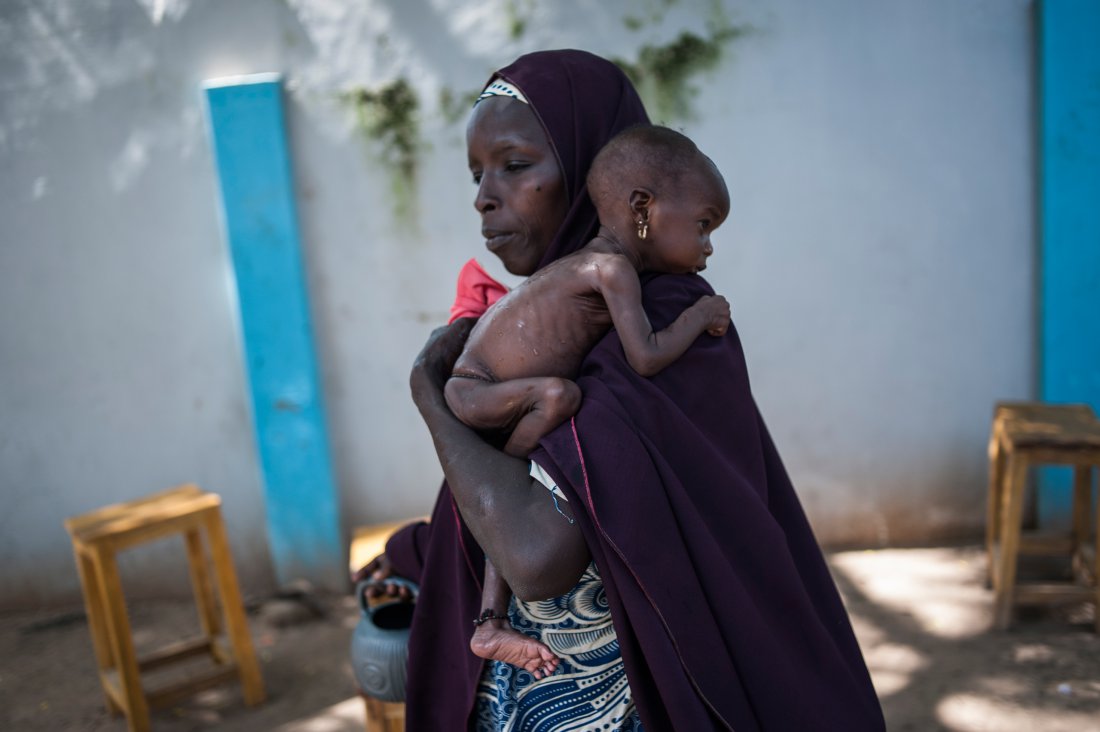The United Nations Children Fund (UNICEF) says at least 400,000 children below five years are suffering from severe acute malnutrition in the north-eastern states of Borno, Yobe and Adamawa.
Speaking at a meeting in Maiduguri on Thursday, Aminu Usman, UNICEF nutrition specialist, said at least N4.4 billion is needed to cater to the food needs of the children.
Every year, an estimated 2.5 million of children under the age of five, suffer from severe acute malnutrition in Nigeria.
This is even as about 91 million of the citizens are in extreme poverty — living below a dollar a day — according to the World Poverty Clock.
Advertisement
Usman, however, said the number of children suffering from acute malnutrition is projected to drop to 258,950 in the three north-eastern states worst hit by Boko Haram insurgency.
‘ONLY 12% OF FUNDING SECURED’
He said while a total of N5 billion is needed to necessitate the procurement of 258,950 cartons of ready-to-use therapeutic food (RUTF) for the treatment of severe acute malnutrition, only N600 million has been acquired.
Advertisement
“Funding has been secured for 29,314 cartons of RUTF, there is a funding gap of 4.4 Billion Naira for the procurement of 229,636 cartons of RUTF,” he said.
He said among the factors worsening the nutrition condition in the north-east is the influx of internally displaced persons in the various camps.
“The affected community coping mechanisms is still low, and any shock will result in further deterioration of nutrition status and so, it is important to have a robust contingency plan,” he added.
UNICEF identified interventions needed to address the challenge as the ‘flexible integrated and timely project’ (FIT) as well as the ‘working to improve nutrition in northern Nigeria’ project (WINNN) — both funded by the Department for International Development (DFID).
Advertisement
It said while FIT focuses on addressing ‘emerging/deteriorating nutrition-related crises in Borno through the implementation of an integrated basic Nutrition package’, WINNN seeks to improve maternal and young child nutrition in the north.
Add a comment







